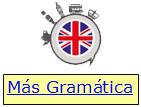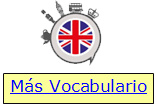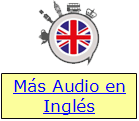|
Need need and dare
Need can be a main verb and a modal auxiliary verb.
Main verb: I need to improve my Spanish. / Do you need any help? / We
don’t need any milk.
Everyone needs to feel loved.
As with other main verbs, add an ‘s’ for 3rd person singular positive
form. He needs to know as soon as possible.
…and use ‘do’ ‘did’ and ‘does’ to make questions: Did you need to get up
early today?
Need is followed by an infinitive.
Modal auxilliary ‘need’ is more common in British English and in the
negative form.
You needn’t worry. / She needn’t book in advance.
As with other modal verbs, there’s no ‘s’ added for 3rd person singular
negative and you make questions and negatives without the word ‘do’ –
Need I pay to use the phone?
We use ‘need’ in the negative form mostly to indicate that there is no
obligation or necessity to do something:
You needn’t take off your shoes. – You don’t need to take off your shoes.
Need can also be followed by a gerund when something needs doing – Your
car needs cleaning (it needs to be cleaned). My flat needs painting.
Past use of ‘need’-
I didn’t need to buy milk as we had lots at home. So I spent the money
on juice instead. (I didn’t buy more milk.) didn’t need to + infinitive
She needn’t have bought milk as we had lots of milk at home. (But she
didn’t know that we had lots at home, so she (unnecessarily) bought more
milk.)
needn’t have + past participle.
Dare
Dare (atreverse) , like need, can be an ordinary verb and a modal
auxiliary verb.
As a normal verb, dare is followed by infinitive with ‘to’. Would you
dare to eat cooked insects?
What wouldn’t you dare to eat?
You can omit the ‘to’: What would you not dare eat?
You can dare someone to do something.
I dare you to pick your nose live on this podcast!
When there’s a object pronoun, you cannot omit the ‘to’.
XI dare you pick your noseX
We don’t use infinitive with to after semi-modal dare in the expression
‘How dare you…….’ (Cómo te atreves)
How dare you pick your nose!
Not: XHow dare you to pick your noseX
Dare is used often in the negative in British English. “Don’t you dare
touch that cake!” / “I didn’t dare tell her what I really thought of
her.”
As a modal auxiliary verb, dare, like need, makes questions and
negatives without ‘to’ – “I daren’t say what I think.” However, It’s
more common to use other expressions to say the same thing.
“He’s afraid to say what he thinks.”
“How dare you speak to me like that!” / “How dare he criticize our
podcast!”
I dare say (British English) = I think, probably or I suppose – “I dare
say it’ll rain soon.”
 *Dispones
de más
PODCAST en inglés publicados en los cuadernos anteriores *Dispones
de más
PODCAST en inglés publicados en los cuadernos anteriores
a los que puedes acceder directamente así como al índice de su
contenido. |
|
|
